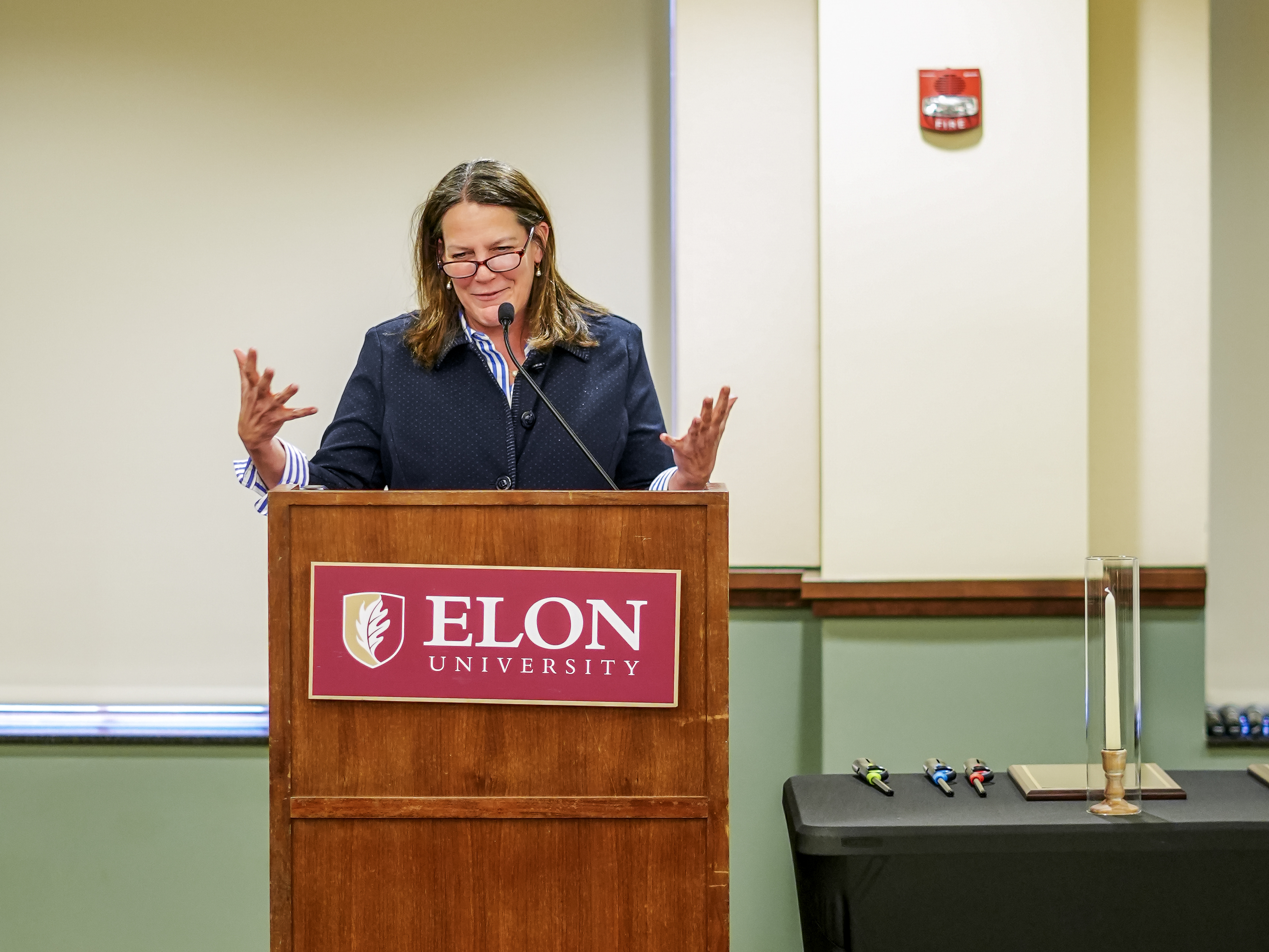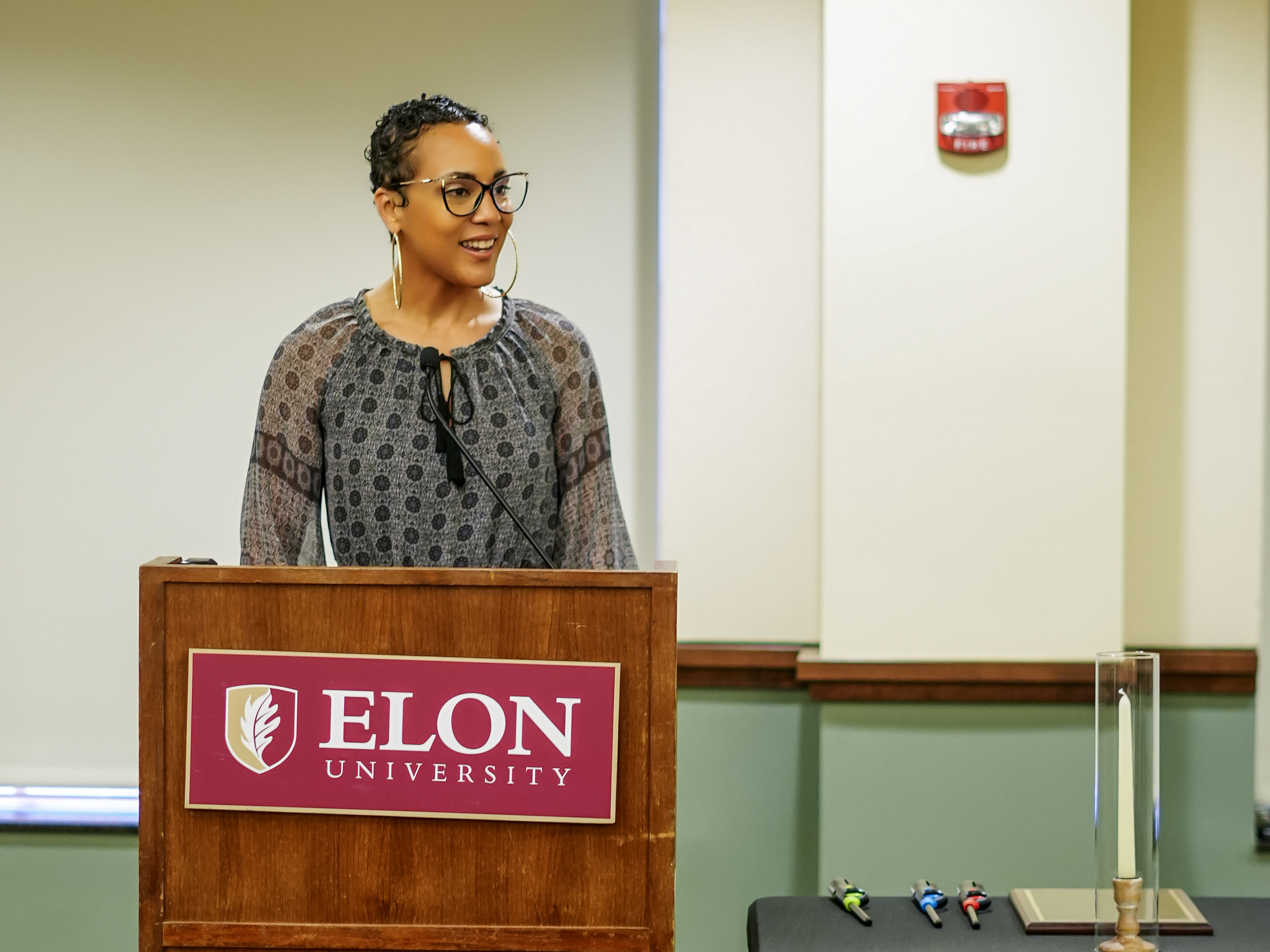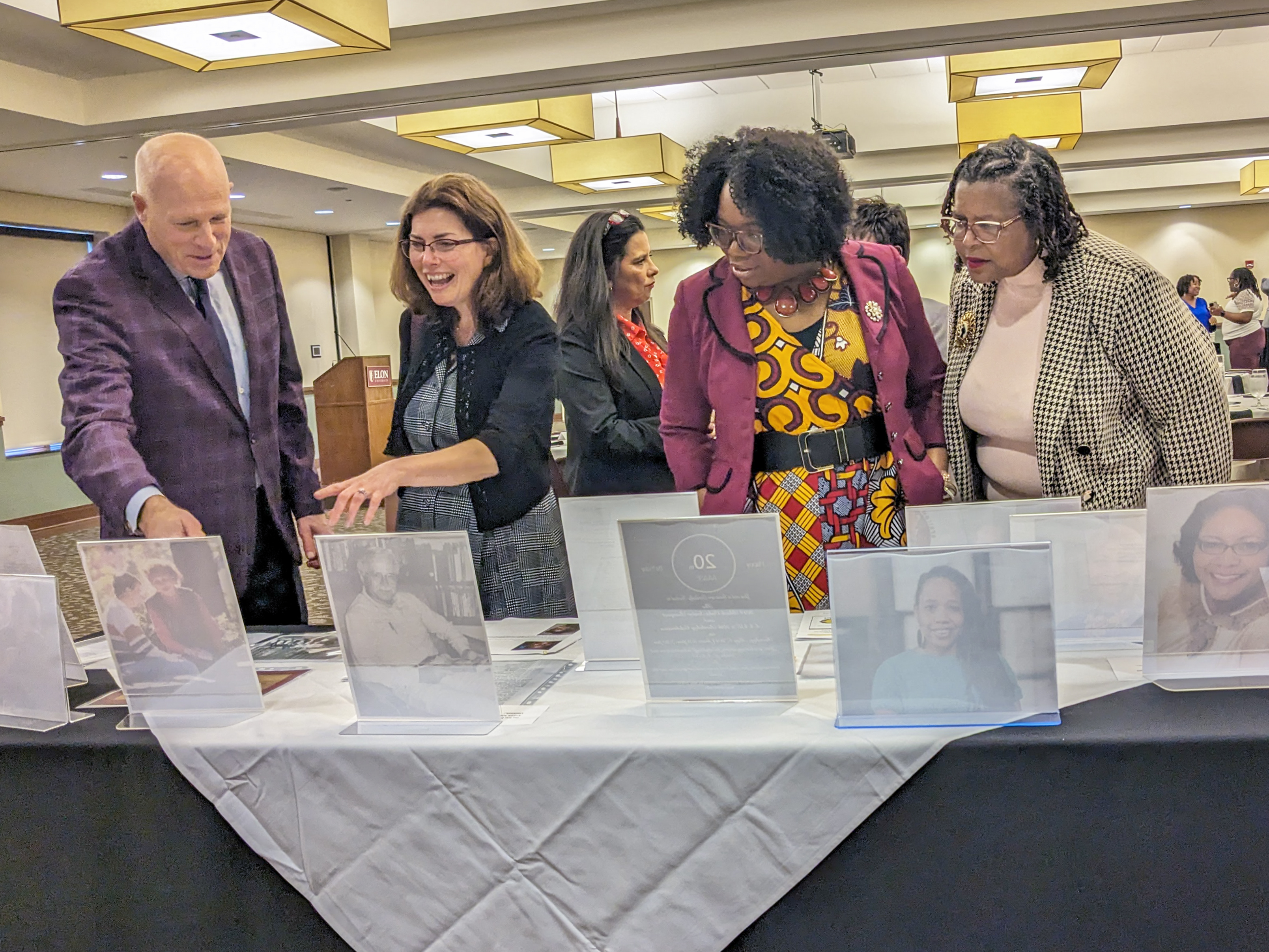Current and former program leaders, as well as Elon University President Connie Ledoux Book and President Emeritus Leo Lambert, celebrated the program Friday, March 15, with community members.
Members of the campus community gathered to mark the 30th anniversary of Elon University’s African and African-American Studies minor on Friday, March 15, celebrating milestones and anticipating ways the program will influence a rising generation of leaders.
“My heart is full of gratitude about the leadership that has resulted in such a meaningful experience for so many of our students, faculty and staff,” said President Connie Ledoux Book. “There’s a passion in African and African-American Studies at Elon, and that’s resulted in the relationships and mentoring that happen in its courses and experiences.”

The gala event was held in Lakeside Meeting Rooms in Moseley Center and featured remarks by President Emeritus Leo Lambert, current program coordinator Keshia Wall, who is an assistant professor of dance, and other faculty involved with the minor.
The African and African-American Studies minor was established in 1994 with Associate Professor Emerita of English K. Wilhelmina Boyd as its first coordinator. It grew from Professor Emeritus of History Brian Digre’s efforts to found the International and Global Studies program with an interdisciplinary emphasis on African culture, history and politics, supported by grants from the U.S. Department of Education.
Book spoke to the “creative depth” in the program and the value of linking the study of African and African American history and cultures for broad understanding of the African diaspora. Over decades, courses in the minor have grown to span disciplines including art and art history, dance, history, human service studies, psychology, sociology and anthropology, among others. The program also includes global study experiences in Ghana, South Africa, Malawi and Barbados.
Looking to the future, Book outlined expected growth on the African continent and emphasized the minor’s role in developing graduates prepared to be global leaders and problem-solvers. The median age there is 19 years old, compared to 39 in the U.S. and 49 in Japan. By 2050, Africa’s population will grow from 1.5 billion to 2.5 billion, and the continent will be home to more than a quarter of people on the planet.
“With the world’s youngest population, the countries in Africa will drive cultural and consumer trends, economic strategies and learning. They will become a force of the future,” Book said. “That’s at the heart of what the minor and the education in its courses are designed to teach. It’s exciting to think about the work, the courses, and the learning that’s happening in African and African-American Studies as awareness of this strengthened Africa as a rising continent grows.”
Previous coordinators Prudence Layne, associate professor of English, and Buffie Longmire-Avital, professor of psychology and director of the Black Lumen Project, were recognized by faculty colleagues Sandra Reid, senior lecturer in human service studies, and Cheryl Miller Dyce, associate professor and executive director of diversity equity and inclusion for the Dr. Jo Watts Williams School of Education.

A candle-lighting ceremony memorialized Boyd — also the namesake of Elon’s Office of African and African-American Studies, located on the third floor of the Alamance Building — and Heidi Frontani, a professor of geography who served as an interim coordinator before her passing in 2016.
Lambert recalled “one of the most profound learning experiences of my life” accompanying the GBL 2300 The Call of South Africa course with Layne and Reid to work with communities while witnessing lasting effects of apartheid and racial violence. He praised faculty and staff for their contributions to Elon, particularly in creating courses that deepen understanding of inequity and in leading institutional efforts to make Elon more equitable.
“I’m deeply grateful to all of you for caring so much to advance Elon on a continuing journey to become a stronger and more just institution,” Lambert said. “My greatest hope for this evening is that we leave with a fraction of a god’s-eye view of the huge impact this program has had on people’s lives, the ripples it has created in the world and the good trouble that has caused.”
Wall acknowledged that students and alumni — including the minor’s first graduate, Sowandé Mustakeem, an associate professor of history and African and African-American Studies at Washington University in St. Louis and author of “Slavery at Sea: Terror, Sex, and Sickness in the Middle Passage” — provide inspiration to continue creatively growing the program.
“We recognize the critical role that education plays in advancing social justice and global citizenship,” Wall said. “As we continue to evolve and grow, we remain committed to providing students with transformative learning experiences that empower them to be informed, engaged and compassionate global citizens.”



